Stop Storing Fruits And Veggies In Plastic Wraps: It’s Time For A Healthier Fridge Habit
Using plastic wraps to store fruits and vegetables may seem convenient, but it can trap moisture, speed up spoilage, and expose your food to harmful chemicals. Switching to breathable storage options like paper bags or glass containers keeps produce fresh longer and supports a healthier, more eco-friendly lifestyle. Make the change for better food and better health.
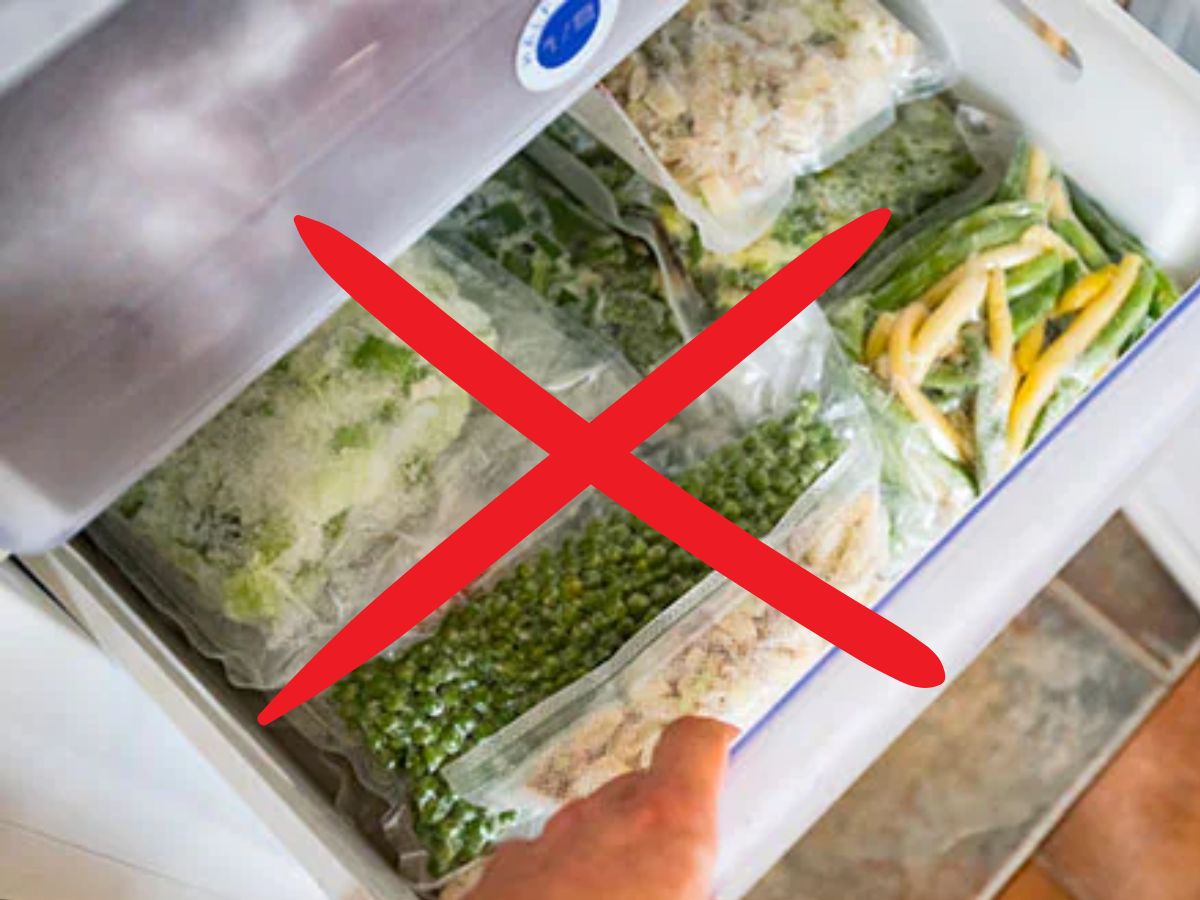
Fridge Habits to Consider Avoiding
Storing fruits and vegetables in plastic wraps is harmful to the food due to chemical leaching and increased spoilage risk. These are harmful to both health and quality.
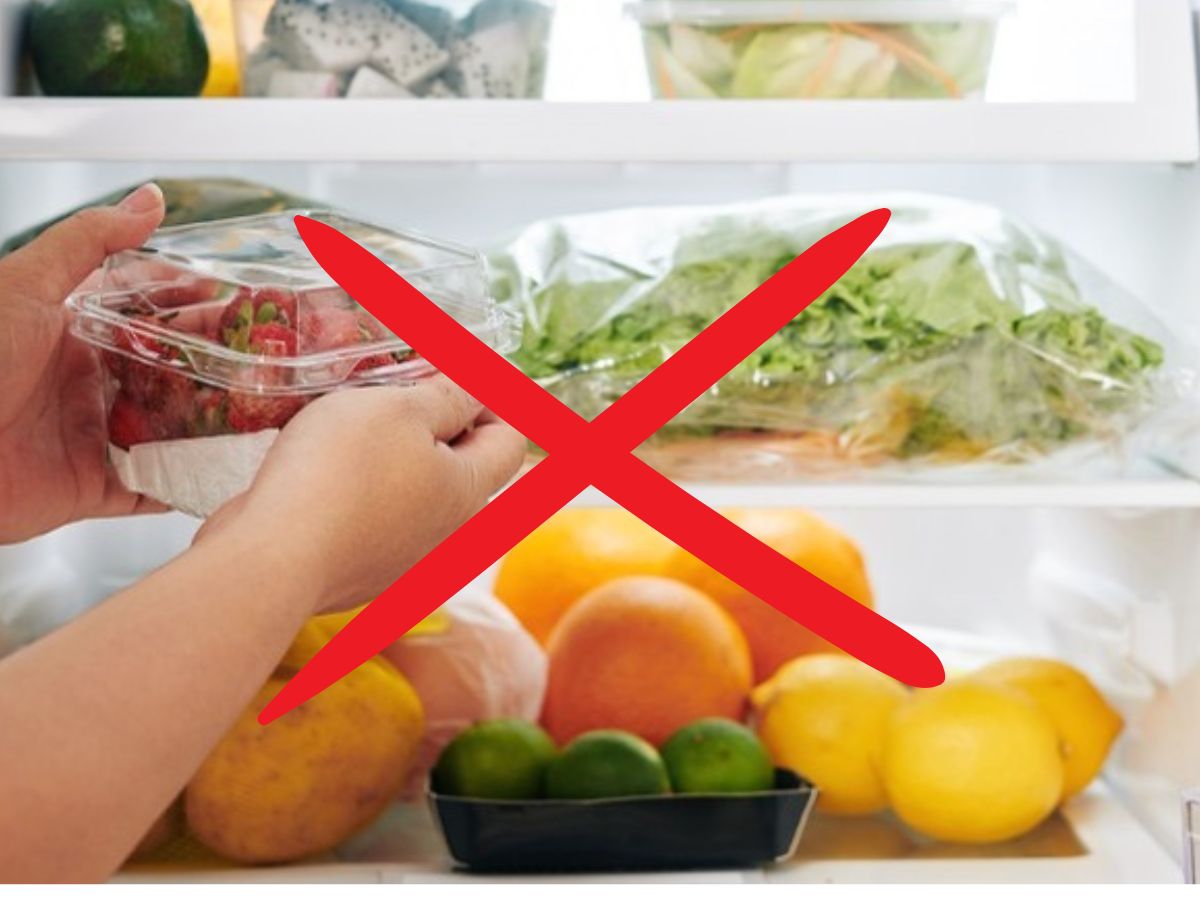
The Impact on Produce Freshness
Fresh cut fruits and vegetables wrapped tightly in plastic do not allow the produce to "breathe" and therefore trap the moisture inside, which leads to quicker spoilage and loss of nutritional value, as well as similar degradation and rot of the fruits and vegetables.
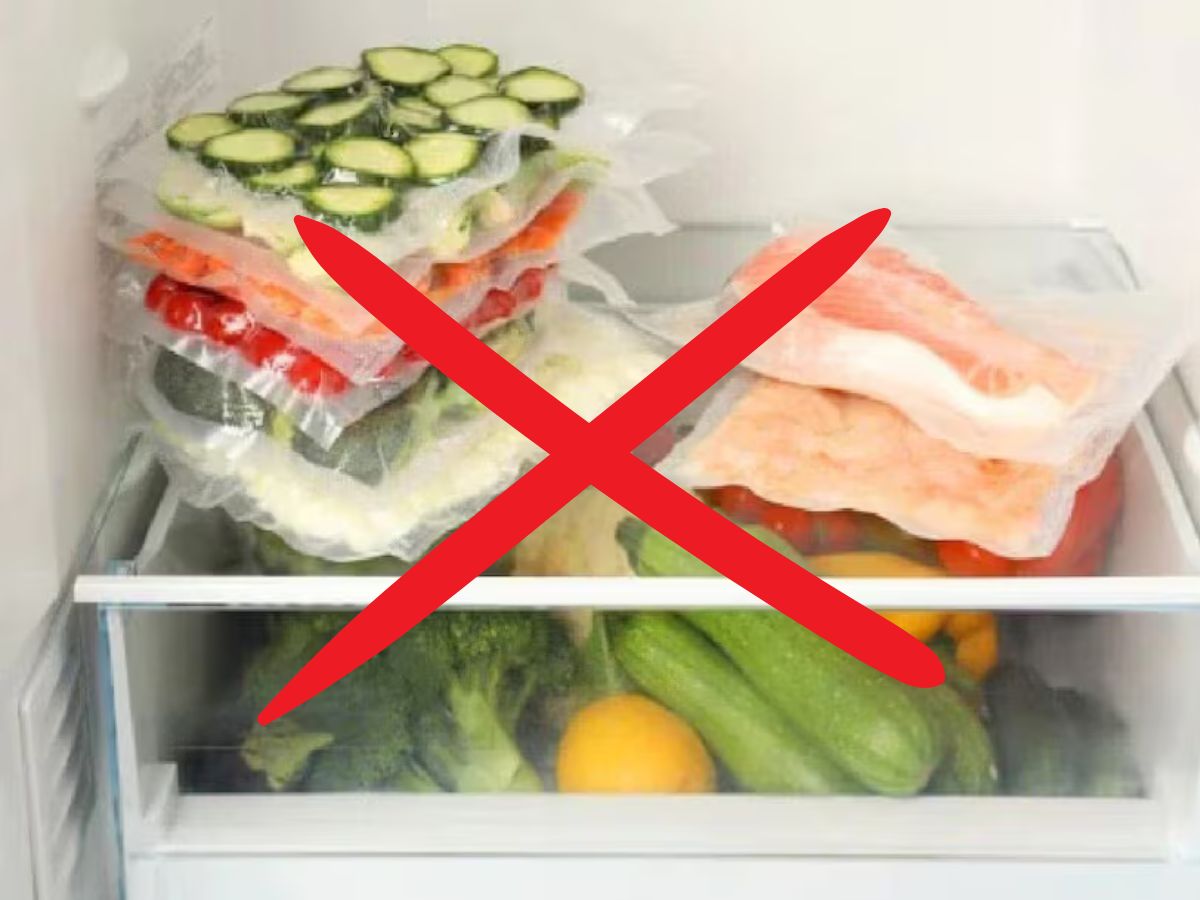
Healthier Options for Storage
There are healthier options than plastic. Beeswax wraps, organic cotton bags, and wax paper are healthy or "green" options that will allow air to circulate, keep food safe, as well as not provide harmful chemical exposure.
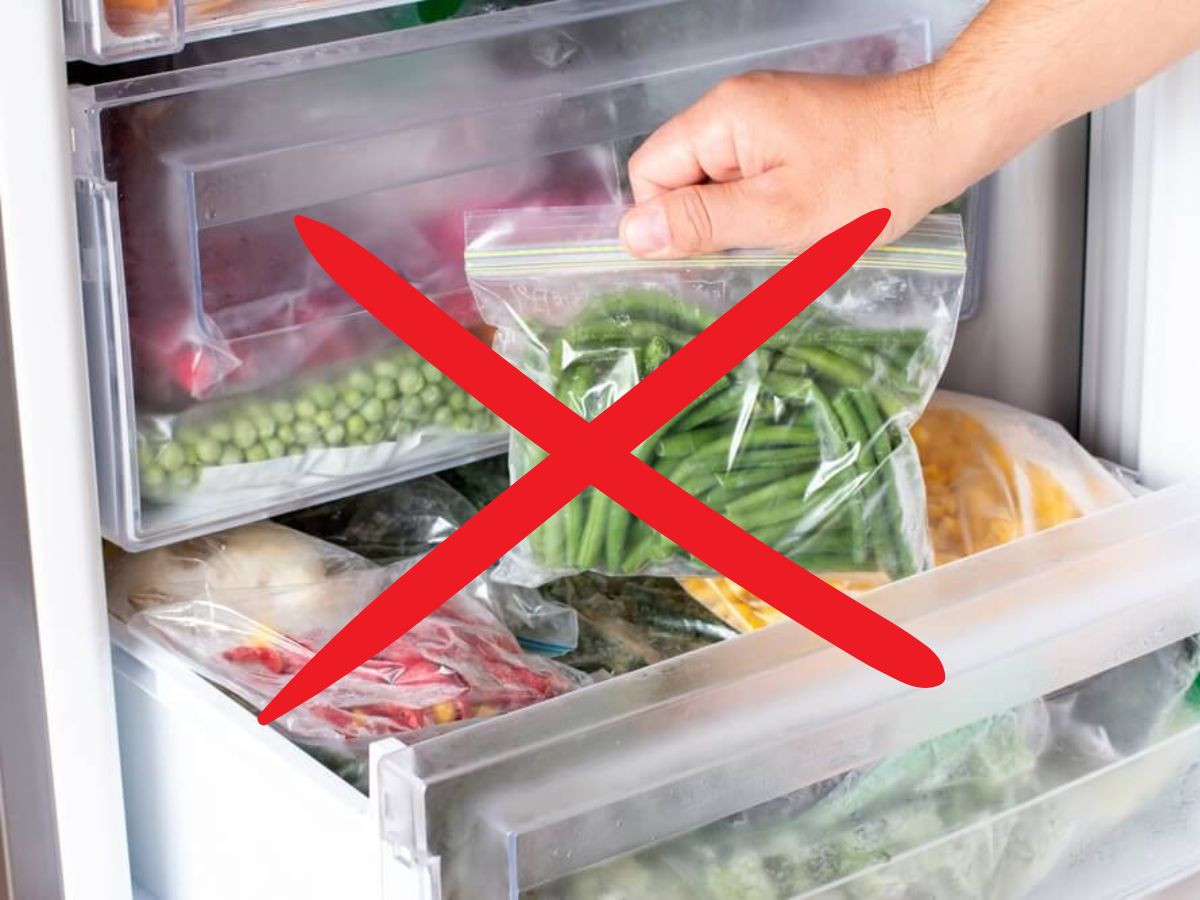
Chemicals in Plastic Wraps
Plastic wraps can leach BPA, phthalates, microplastics and nanoplastics into food and may lead to various health outcomes such as hormone disruption, organ damage, and more.
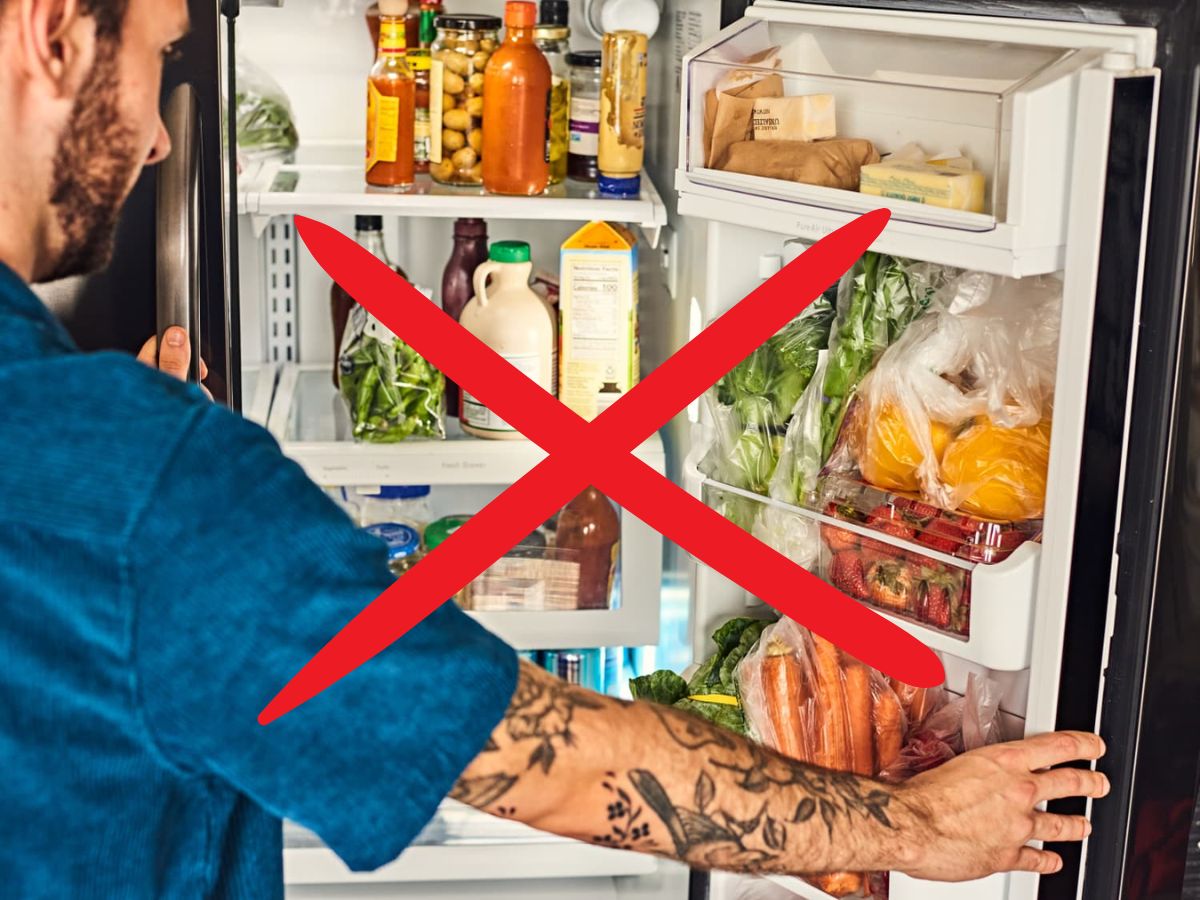
Better Containers for Cut Produce
Cut fruit and vegetables should be stored in glass or stainless steel containers as they will hold freshness and nutrient quality and avoid any possible leaching of chemicals from plastic.
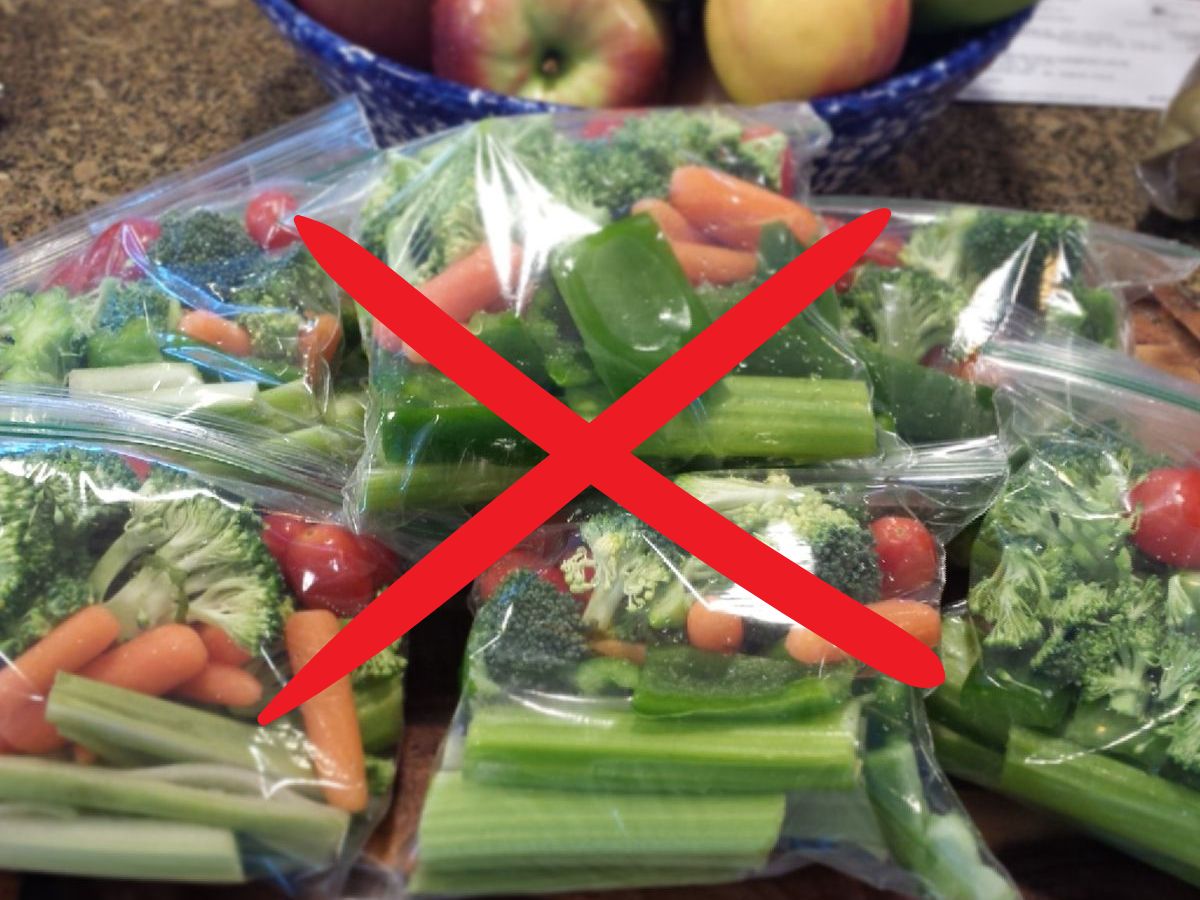
Healthier Fridge Habits
By moving away from plastic wraps you will reduce your exposure to chemicals, help eliminate plastic waste and maintain the freshness and nutritional quality of your fruits and vegetables.

Disclaimer
This photo gallery is for informational purposes only and not a substitute for professional food safety or environmental advice. Storage practices may vary depending on produce type and climate. Always follow trusted guidelines for food preservation.





